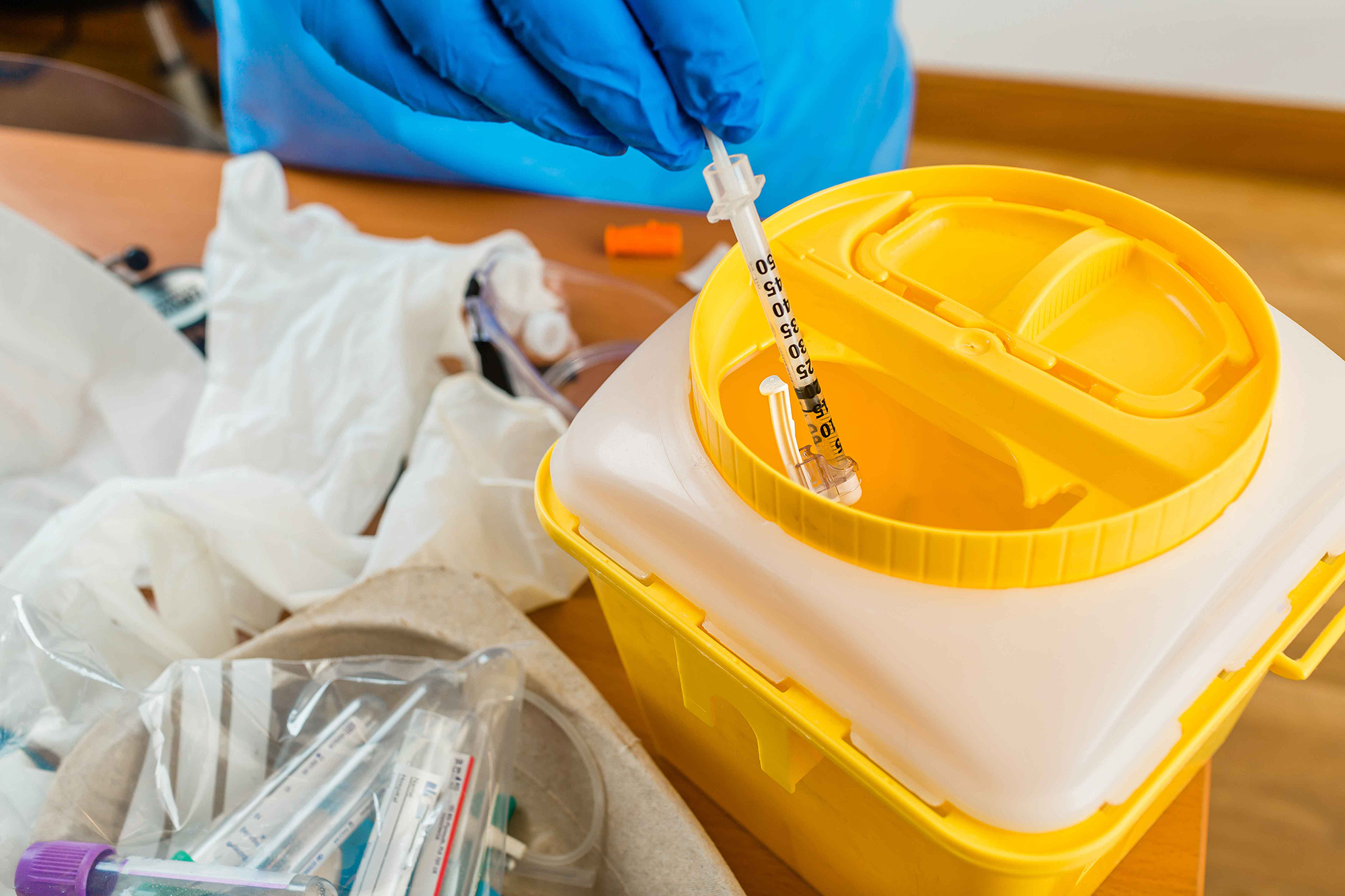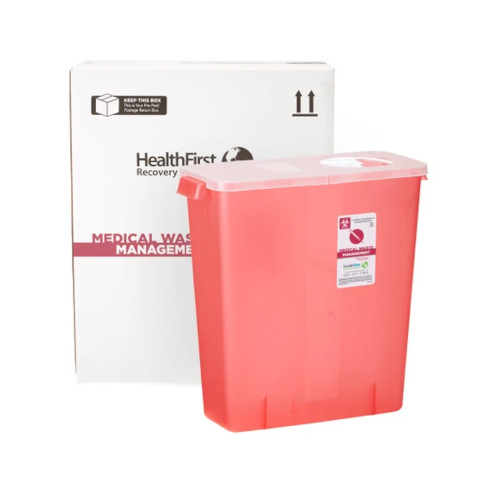Navigating Medical Garbage Disposal: Crucial Providers for Medical Care Facilities
In the intricate landscape of health care procedures, the administration of medical waste is an essential facet that demands meticulous attention. Healthcare centers, whether large healthcare facilities or little centers, are left with the duty of handling, dealing with, and getting rid of a broad range of medical waste streams. The complexities associated with navigating through the governing needs, guaranteeing correct waste partition, and carrying out risk-free collection and transportation procedures are critical. Comprehending the crucial services that support clinical garbage disposal is not just a matter of compliance but additionally a basic element in guarding public health and ecological well-being. The intricacies of this process are important for healthcare centers, and the experience used in this realm plays a pivotal duty in maintaining the honesty of medical care systems.
Regulatory Conformity Assistance
For healthcare facilities, guaranteeing regulatory conformity support is vital to maintain proper handling and disposal of clinical waste. By partnering with regulatory compliance specialists, health care facilities can remain up-to-date on evolving laws, alleviate risks linked with inappropriate waste disposal, and eventually contribute to a more secure and much more lasting atmosphere for all.
Waste Segregation Support

Healthcare centers must provide clear guidelines and training to staff on exactly how to segregate waste efficiently. This includes separating general waste from harmful materials such as sharps, contagious waste, pharmaceuticals, and chemical waste.
Collection and Transportation Solutions

Appropriate collection and transportation solutions are necessary elements of the clinical garbage disposal process in healthcare facilities. These solutions make sure that harmful materials are dealt with safely and in conformity with regulations to shield both the environment and public health. Medical care facilities count on specialized waste administration business to offer reliable collection and transportation solutions tailored to their demands.
Clinical waste collection entails setting apart different kinds of waste at the factor of generation, using color-coded bags or bins to identify between general, harmful, pharmaceutical, and other waste streams. When accumulated, the waste is carried in committed vehicles equipped to handle unsafe materials securely.
Treatment and Disposal Solutions
In the world of clinical garbage disposal for medical care centers, after the crucial stage of collection and transportation solutions, the focus changes check my source towards carrying out reliable therapy and disposal remedies. Therapy options often involve procedures such as autoclaving, which makes use of vapor under stress to disinfect the waste. This approach is frequently utilized for contagious waste that needs to be made non-hazardous before disposal. Another widespread therapy approach is incineration, where waste goes through heats in controlled settings to lower its quantity and eliminate pathogens.
Disposal solutions include the last step in the medical waste monitoring procedure. Reusing and resource recovery are additionally gaining traction as sustainable disposal choices for specific types of medical waste materials.
Efficient therapy and disposal options are critical in making certain conformity with regulations and protecting public health and wellness and the environment. Health care centers need to very carefully review and choose ideal approaches that straighten with their waste monitoring objectives and sustainability campaigns.
Personnel Training and Education And Learning

To efficiently manage clinical garbage disposal in health care facilities, comprehensive team training and education and learning play an important duty in making certain adherence to governing demands and maintaining a secure environment. Correct training furnishes personnel with the knowledge and abilities needed to manage different kinds of clinical waste, segregate them properly, and package them firmly for disposal. By informing employees straight from the source on the threats connected with improper handling of clinical waste, facilities can decrease the chance of mishaps, contamination, and regulatory infractions.

Final Thought
Finally, health care facilities count use this link on vital medical garbage disposal solutions to make certain regulatory conformity, appropriate waste segregation, safe collection and transport, efficient therapy and disposal, in addition to staff training and education. These solutions play an essential function in maintaining the health and security of both healthcare workers and the basic public, highlighting the significance of correct administration of clinical waste in health care setups.
For medical care facilities, making sure regulatory compliance support is important to maintain appropriate handling and disposal of clinical waste. Waste partition involves categorizing various types of medical waste to guarantee suitable handling, therapy, and disposal. This includes separating basic waste from hazardous materials such as sharps, contagious waste, pharmaceuticals, and chemical waste.Clinical waste collection entails segregating different types of waste at the point of generation, using color-coded bags or bins to distinguish in between general, harmful, pharmaceutical, and various other waste streams.In the world of medical waste disposal for medical care facilities, after the important phase of collection and transportation services, the focus moves in the direction of carrying out reliable therapy and disposal solutions.
Comments on “Professional Medical Waste Disposal Services: Managing Biohazards”